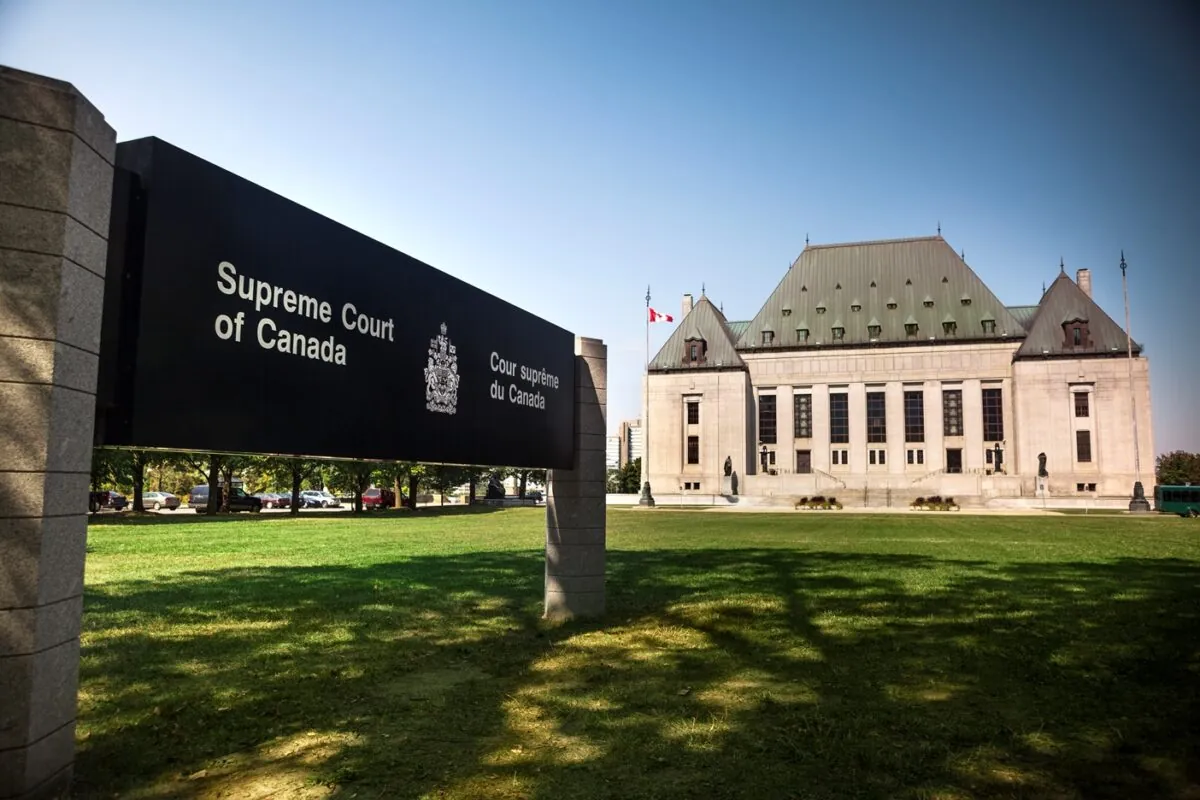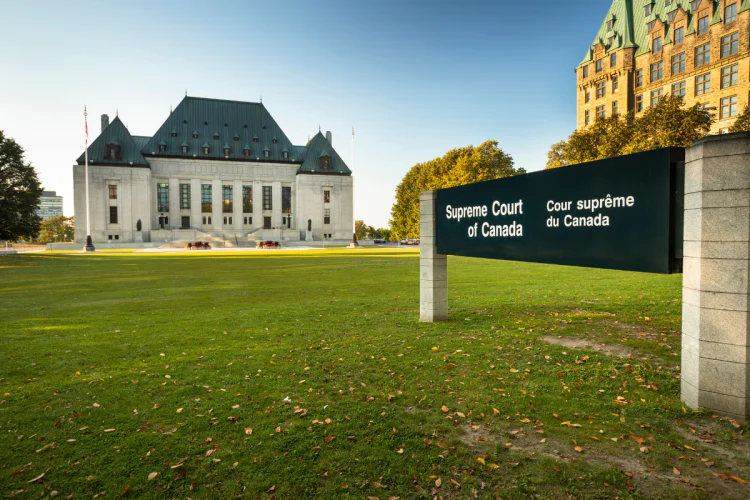Courts Can Vary or Set Aside Publication Bans in Limited Circumstances, SCC Rules

A recent Supreme Court of Canada (SCC) ruling has breathed new life into the Canadian Broadcasting Corporation’s (CBC) efforts to lift a publication ban in a wrongful conviction case, and provided clarity on when publication bans and similar restrictions may be altered or set aside.
On September 28, 2021, a majority of the SCC held that a party affected by a publication ban or sealing order may seek to have the restriction altered or removed, even if the underlying proceeding has concluded. This particular case involved the wrongful conviction proceeding involving Stanley Ostrowski, who was convicted of first degree murder in 1987.
Background
In 2014, Manitoba’s Minister of Justice referred the Ostrowski case to the MBCA to determine whether Mr. Ostrowski had been wrongfully convicted. The Crown ultimately conceded that there had been a miscarriage of justice and that the 1987 conviction should be set aside. The MBCA quashed the conviction, ordered a new trial and entered a stay of proceedings.
The MBCA heard oral evidence from 12 witnesses, including justice officials who had been involved in Mr. Ostrowski’s prosecution. Mr. Ostrowski sought leave to introduce fresh evidence regarding circumstances that occurred after one of the witnesses testified. As required by the Court rules, the proposed fresh evidence was submitted by affidavit (the “Affidavit”), which was sealed by virtue of the Court of Appeal Rules until the MBCA decided whether the evidence would be admitted.
Despite the Court rule sealing the Affidavit, the MBCA reviewed the Affidavit on consent of the Crown and Mr. Ostrowski. The Court then determined that the proposed fresh evidence would not be admitted.
The MBCA issued its reasons for judgment on the merits of the wrongful conviction proceeding, indicating that there would be a publication ban on the “details” of the Affidavit. This publication ban was imposed by the Court on its own motion and without any notice to media or the public. The Court’s registry refused to permit the media or the public to access the Affidavit.
A Certificate of Judgment was filed dealing with the merits of the wrongful conviction proceeding, but no order or judgment was entered documenting the publication ban.
The CBC’s 2019 Motion to the MBCA
In 2019, the CBC brought a motion to the MBCA seeking to have the publication ban on the Affidavit varied, clarified or set aside.
The MBCA dismissed the CBC’s motion on the basis that it had no jurisdiction to deal with the publication ban. The MBCA relied upon a Court of Appeal rule preventing the rehearing of an appeal, as well as the common law doctrine of functus officio, which dictates that a court cannot rehear a case after rendering judgment.
The CBC applied for and obtained leave to appeal the MBCA’s decision that it had no jurisdiction to reconsider the original publication ban. In a separate appeal, CBC applied for and obtained leave to appeal the original publication ban.
The Supreme Court of Canada’s Majority Decision
The SCC held that the MBCA erred in holding it had no jurisdiction to hear CBC’s motion to reconsider the publication ban. The SCC remitted CBC’s motion for reconsideration back to the MBCA and adjourned the appeal of the original publication ban pending the MBCA’s decision on CBC’s motion for reconsideration.
Much of CBC’s argument was anchored by the open court principle and the constitutionally-protected right of freedom of the press, both of which promote public access to court proceedings and records.
In determining that the MBCA erred in the 2019 Jurisdictional Judgment, the Court held:
- Even when a Court has lost jurisdiction over the merits of a particular matter by entering a formal judgment, it maintains its jurisdiction to supervise access to and restrictions on publications of the record of the proceedings. This principle does not undermine the purpose of the doctrine of functus officio, which is to promote finality of the decisions on the substantive matter before the court. A restriction on the right of the public to access and discuss the record of the proceeding does not involve the substantive issue determined by the Court. In exercising this supervisory authority, “courts must ensure compliance with the robust and constitutionally‑protected principle of court openness, while also remaining responsive to ‘competing important public interests’ that may be put at risk by that openness”; and
- While the importance of the finality of court proceedings should narrow the circumstances under which courts should set aside or vary restrictions, the issuing court may do so in the following circumstances:
- Where an affected party with proper standing had not been given notice before the restriction was imposed and where the affected party proposes to make submissions that could affect the result of the proceeding. Representatives of the media should generally have standing to challenge orders that affect the open court principle. After learning of a restriction, the party seeking reconsideration is required to take prompt action to challenge it, or the party will be deemed to have acquiesced to the restriction; or
- Where there has been a material change in the circumstances. The burden of establishing a material change in circumstances falls on the party seeking to vary or set aside the order.
Applying these legal principles to the CBC’s appeals, the SCC found that the MBCA had “continuing, ancillary jurisdiction to consider the CBC’s motion regarding sealing orders and publication bans” and that this “included implied jurisdiction to vary or vacate its orders limiting court openness in accordance with the common law principles considered above.”
The SCC considered whether a Court of Appeal Rule prohibiting rehearings of appeals displaced this common law jurisdiction, and found that it did not. The CBC’s motion was not for a rehearing of the appeal but rather for a reconsideration of an order concerning court openness. Further, the court rule prohibiting the rehearing of court motions did not apply because the publication ban had been made on the Court of Appeal’s own initiative, without hearing submissions on the point and without prior notice to the media. As there was no original hearing for the publication ban, there could be no “rehearing” of the motion.
The Court remanded CBC’s motion back to the MBCA for consideration on its merits. The Court held that CBC had not in this case established a material change in circumstances but that it could rely upon the Court’s power to set aside the publication ban on the basis that it was made without notice to CBC. The SCC left it to the MBCA to determine if CBC had standing and whether the CBC unreasonably delayed bringing its motion.
The SCC made it clear that in determining whether restrictions on the open court principle are justified, the MBCA should apply the test outlined in Sierra Club for such restrictions:
“A court can order discretionary limits on openness only where (1) openness poses a serious risk to an important public interest, (2) the order sought is necessary to prevent that risk and (3) the benefits of the order outweigh its negative effects (Sherman, at para. 38, citing Sierra Club, at para. 53).”
The SCC rejected the argument made by some respondents that the Sierra Club test did not apply because the Affidavit had not ultimately been admitted. The SCC also emphasized that the MBCA will be required to consider the judgment in Sherman Estate v. Donovan, 2021 SCC 25, which held, among other things, that there is a public interest in privacy concerning the protection of human dignity. If a party shows that there is a serious risk to their interest that strikes at their biographical core, the party “must then show that the order they seek is necessary to prevent the risk and that the benefits of the order outweigh its negative effects, including the effects on constitutionally‑protected court openness.”
Respecting the right of access to the Affidavit, the Court held that the sealing required by the Court ceased when it decided on the fresh evidence motion. Any further sealing would have to be justified in accordance with the Sierra Club test.
Dissent
In one of her final decisions before her retirement, Abella J. issued dissenting reasons in this matter. She agreed with the majority that publication bans can be varied or set aside in accordance with the principles described above, but said she would not have remanded the matter back to the MBCA on the basis that such a remand would be contrary to the interests of justice because CBC did not bring its motion quickly enough.
Key Takeaways
The SCC ruling indicates that a court may vary or set aside a publication ban or similar restriction when there has been a material change in circumstances or where the person making the application did not have notice before the restriction was imposed and has new submissions that could affect the result of a proceeding.
An affected party thus has an alternative to incurring the expense and uncertainty of appealing a restriction or seeking judicial review. This is especially important where the original restriction was imposed by a Superior Court in a criminal proceeding. Without this alternative, the only way for an affected party to appeal or seek review of such a restriction is to seek and obtain leave to appeal to the SCC.
The SCC also made it clear that the open court principle applies to all materials that are made available to the court in its exercise of its judicial power, including evidence that is reviewed by the court but not admitted.
CBC’s Legal Team
Jonathan Kroft of MLT Aikins served as lead counsel for CBC alongside the CBC’s in-house counsel, Sean Moreman. In addition to Jonathan Kroft, the MLT Aikins legal team consisted of associates Lexi Cantor and Jennifer Sokal.





